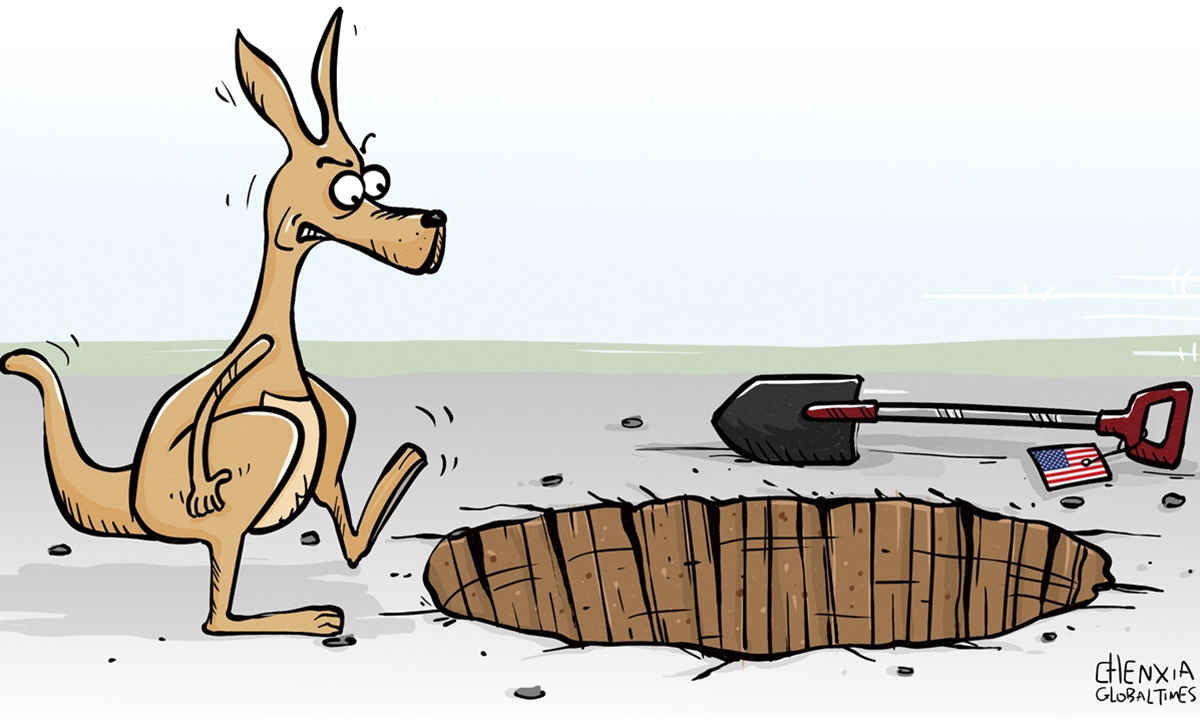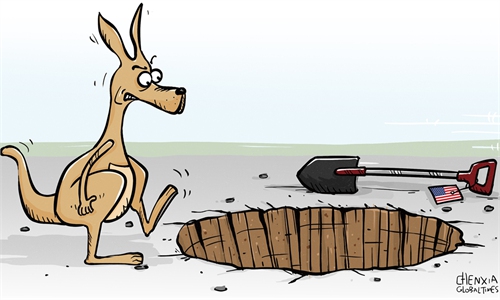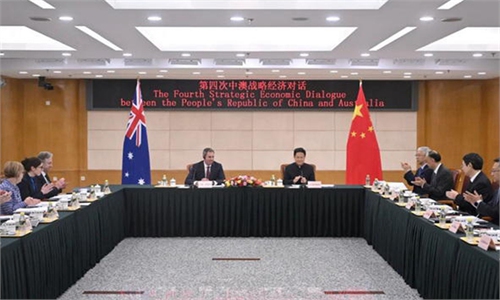Aligning with US geopolitical strategy hurts Australia’s soft power in region

Illustration: Chen Xia/GT
Concerns about declining soft power in the Asia-Pacific region have worried many in Canberra for a number of years. Various efforts and funding commitments to initiatives such as educational exchanges have clearly not had any substantial effect, given that Australia's soft power ranks have been consistently in decline. Worries about insufficient Asian language and culture literacy in Australia only serve to amplify concerns about diminished soft power.The decline in Australia's soft power alarmed the Department of Foreign Affairs and Trade (DFAT) in 2017. An inquiry was initiated in 2018 to examine why Australia's soft power was in decline and to make recommendations on remedial measures. In 2020, however, the inquiry was quietly terminated without ever reaching a conclusion or delivering a final report. There have been various reviews and efforts made to revitalize Asian language education, with so far disappointing results.
Then DFAT Secretary Frances Adamson said in 2020 that her department finds it difficult "to come up with something that we think absolutely hits the mark." Quietly, DFAT's organizational chart dropped any reference to soft power. If diplomatic capacity is a cornerstone of soft power, it is clear that Australia's limited diplomatic footprint in Asia creates a fragility in Australia's regional influence, as made clear in the Lowy Institute's Global Diplomacy Index. If this is the global pattern, the decline is mirrored in the fall in Australia's overall trust levels in Southeast Asia. In a 2022 survey of Indonesians, the Lowy Institute found that trust in Australia had declined from 75 percent in 2011 to 55 percent in 2022.
Australia's clear proximity to the US on foreign and defense policy issues is likely to see relative ambivalence to negative attitudes toward the US rub off on those directed toward Australia. This proximity raises questions about national sovereignty and the extent to which Australia acts as a good faith actor in its own right, or is largely a subimperial agent of American-defined priorities.
Three current events reinforce perceptions of Australia's limited "sovereign agency window," not just from outside of Australia but also amongst a growing number of eminent and ordinary Australians.
The AUKUS nuclear-powered submarine deal builds on agreements entered into between Australia and the US to expand American troop and military presence in Australia to levels unprecedented since World War II. Australia was being set up as what the Washington Post described as a "launch pad" for American military interventions in the Asia Pacific, as US military stockpiles were being built up. The AUKUS arrangement has drawn growing criticism, operationally as well as strategically with pointed questions being raised about the extent to which AUKUS has aborted national sovereignty and diminished security.
Australia's recent policing deal with Pacific Island nations also amplified questions about the extent to which Australia acts merely as a subimperial agent. When US Deputy Secretary of State, Kurt Campbell, remarked to Australia's Ambassador to the US, Kevin Rudd, in August that "We've given you the lane, so take the lane," many saw this as a confirmation of the abrogation of national sovereignty.
Lastly, Australia's equivocation and ambivalence in relation to the tragedy unfolding in Gaza and Lebanon echoes the sentiments of America's political establishment rather than the growing chorus of anger in the Australian community.
Questions of soft power are entangled with Australia's quest for its identity. Can a nation anxious about its geographical location, and which presents itself as a subimperial power, carry genuine soft power heft in its own right? For so long as Australia remains a subimperial power, it's likely its soft power ambitions will remain curtailed.
The author is chairman at Smart Trade Networks, adjunct professor at the Queensland University of Technology and former policy advisor to Kevin Rudd. opinion@globaltimes.com.cn



